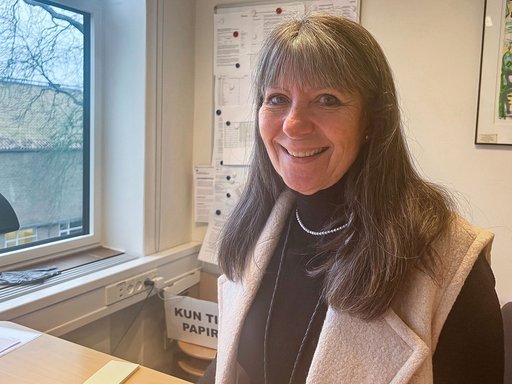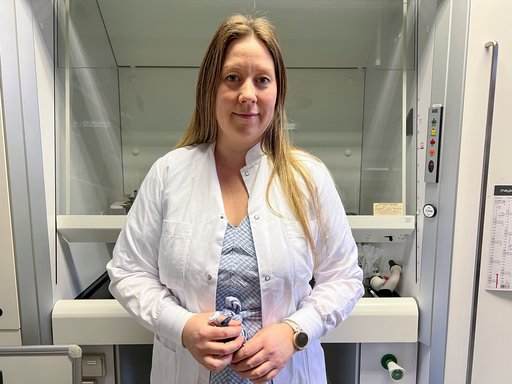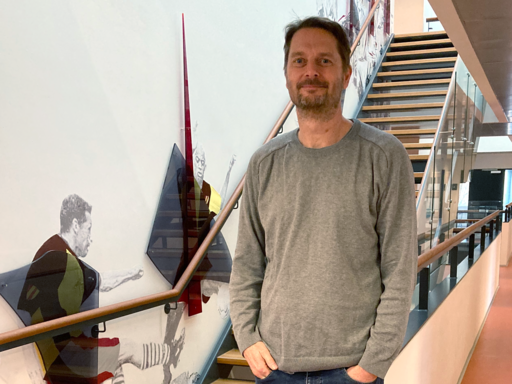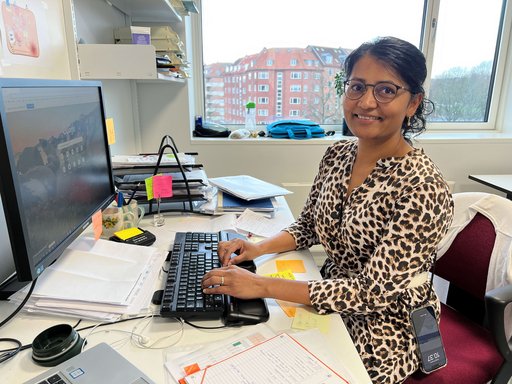VOXPOP: Can you stay warm?
Health has saved approximately 22 % on both electricity and heating bills after a number of energy-saving measures were introduced in late 2022. Employees from the Faculty’s various buildings talk about how they experience the initiatives in their everyday lives.


Birgitte Lütge, Clinic Manager, Department of Dentistry and Oral Health, building 1614 (Aarhus School of Dentistry)
It’s really cold right now in the offices. We’re freezing. Several of my colleagues sit wrapped up in blankets, and I always have some extra clothes with me and have even worn ski trousers at work. I find that we all want to make an extra effort to save on the heating. In their eagerness to save, some people have turned down the radiators in the clinics, but we cannot and should not do this. It would be too cold for our patients, who are lying completely still – and in fact, also for our students, who carry out the treatments in clinic uniform with short sleeves.
We’re really pleased that the lights go out earlier, and that we can now turn them off ourselves. I’ve also noticed that several people are using darker lighting than we did before. The lighting is no longer on at full blast.

Ida Kathrine Sneum Tvilling, laboratory technician, Department of Biomedicine, building 1233/1234 (Biomedicine South)
All of our freezers and refrigerators have been adjusted, but everything we have in there can tolerate being stored at slightly higher temperatures, so that doesn’t make any difference to our working day.
The biggest change is definitely that we must remember to turn off and, especially, turn on the fume cupboards and LAF benches, which were previously on all day. And we must make sure to tell our colleagues, so that they don’t inhale poisonous fumes in the belief that the fume cupboard is turned on as usual. We have tried making some signs to show whether the fume cupboard is on or off, and we must remember that the LAF benches need to heat up for 20 minutes before we can use them. We need to fundamentally change some work habits and routines, and of course that takes time. But it’s really okay – it’s just a question of getting used to it.

Kristian Overgaard, professor, Department of Public Health, building 3410 (Dalgas Avenue)
What we notice most is that the light sensors have been adjusted, and the lights switch off quickly if we sit too still. This has also happened during meetings and exams. Then we need to stand up and wave our arms about, but that’s okay, it’s just a detail.
I’m in the department’s building on Dalgas Avenue, and we’ve done a lot here, too. We have for example tidied up the freezers and taken one freezer out of operation. We also have a couple of people who are away travelling, so we’ve closed down their offices, which are now cold and dark while they are gone.

Line Reinert, associate professor, Department of Biomedicine, building 1115 (the Skou Building)
Our energy ambassadors have done a lot to make us more aware of our power consumption. We have started turning off the machines we’re not using during the day, and we turn them off completely when we go home, so that they are not on standby. These might for example be flow benches or microscopes that are connected to a PC. It’s totally okay and not something that impacts the research. Not at all.
The only thing that has been a bit bothersome is that the ventilation in the toilets has been reduced. It can smell a bit bad there sometimes.
You can read about the Faculty’s energy savings in the article “Health makes huge savings on electricity and heating“